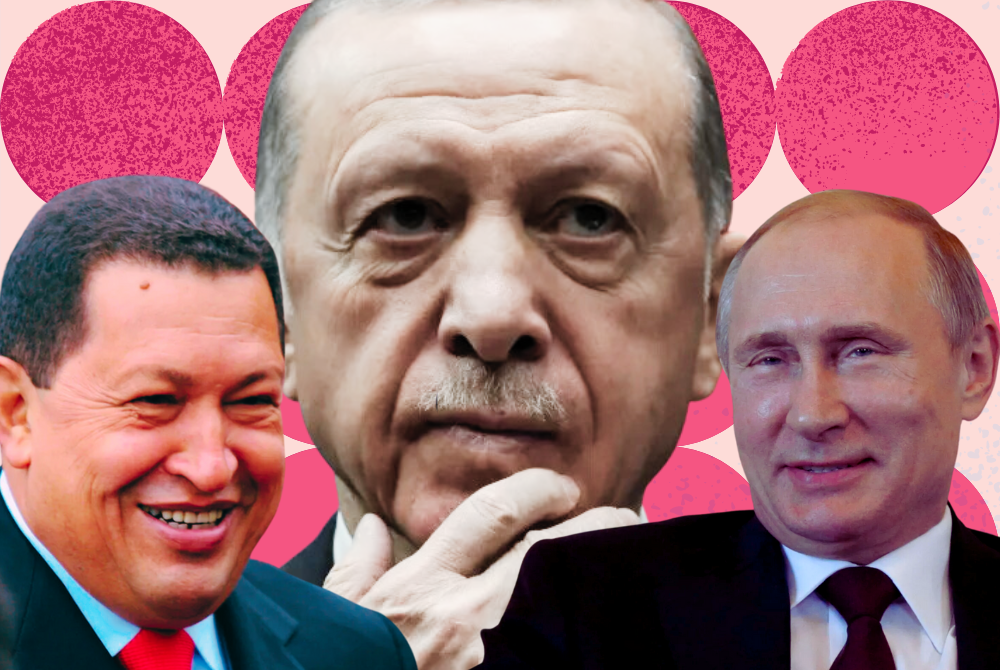Leadership Amidst Turbulence: Economic reforms and the shadow of populism

In the often tumultuous landscape of global politics, few events have more impact than economic reforms. The road to economic revival and sustained progress is fraught with political risks and the potential for upheaval.
Unfortunately, the pain and sacrifice demanded by such reforms can become the fodder for political opponents and discontented citizens, laying the groundwork for the emergence of populist figures who promise immediate relief and reject the painful process of reform.
Examining cases such as Russia, Turkey, and Venezuela in the late 1990s sheds light on the capricious power of economic reforms and their pivotal role in shaping the destinies of nations.
During the late 1990s, these countries found themselves grappling with economic crises and the urgent need for substantial changes. In the face of painful but necessary decisions of their predecessors, Recep Tayyip Erdogan in Turkey, Vladimir Putin in Russia, and Hugo Chavez in Venezuela capitalised on the opportunity to ultimately define their leadership and national trajectories.
Erdogan's rise to power in Turkey was deeply intertwined with the economic tumult that preceded his ascent. In the late 1990s, Turkey was reeling from a severe economic crisis marked by skyrocketing inflation, financial instability, and a plunging currency. Erdogan recognised the imperative of bold actions to address Turkey's economic woes. Through his subsequent leadership, Erdogan implemented populist policies that revitalised the Turkish economy, but also led to significant depreciation of the lira.
Similarly, in Russia, the economic turmoil of the late 1990s created an environment ripe for transformation. Vladimir Putin's rise to power was partly due to fiscal disarray and a collapse of confidence in its financial institutions. The surge in commodity prices and market-oriented reforms of his predecessor allowed Putin to stabilise the economy, restore investor confidence, and propel Russia onto a trajectory of resurgence as a geopolitical force with a confidence to invade its eastern neighbour in 2022.
Venezuela found itself teetering on the brink of economic collapse in the late 1990s, a precipice from which Hugo Chavez seized the opportunity to enact sweeping populist policies. Chavez's restructuring of the Venezuelan economy, including nationalizing key industries and implementing social welfare programs, left an indelible mark on the country's political and economic landscape. However, as history has shown, the long-term consequences of these policies have given rise to hyperinflation and a severe humanitarian crisis.
The stories of Erdogan, Putin, and Chavez serve as cautionary tales of the political risks and contentious outcomes associated with such pivotal decisions of uneven economic and political reforms.
The tale of strongman leadership arising from the aftermath of economic hardship reverberates through time. History is replete with examples of leaders who undertook the arduous task of implementing unpopular but necessary reforms, only to be displaced by populist movements that capitalised on public disenchantment such as in Turkey, Russia and Venezuela. The vulnerability of leaders who champion economic reforms cannot be overstated, as populist leaders often exploit public frustration to gain influence, painting their predecessors as callous and disconnected from the people's struggles.
Despite the perils and political risks, the imperative for economic reforms remains indomitable. The Madani government’s efforts such as the Renewable Energy Roadmap, the progressive wage model, expanding the tax base through high value goods tax and subsidy rationalisation for more strategic spending should be lauded. The refusal to confront economic challenges and enact necessary changes can lead to prolonged stagnation, decline, and irreparable damage to the nation's long-term prosperity.
The vilified leader who makes the difficult decisions in the face of adversity, as exemplified by the legendary figure of Abraham Lincoln, proves the enduring impact of far-sighted leadership. Lincoln, in the crucible of the American Civil War, confronted the momentous task of crafting policies that would lead the nation toward unity and prosperity. His steadfast leadership was a testament to the transformative power of bold decision-making amidst adversity, even when it comes at great political cost.
Leaders who champion reforms must be acutely aware of the potential for backlash and the rise of populist figures who may exploit the discontent and hardship experienced by the populace. The legacy of leaders who initiate vital economic reforms may depend not only on the success of those reforms but also on their ability to manage the fallout and prevent the rise of figures who seek to capitalise on the disarray.
It is imperative for leaders steering the course of reforms to address public concerns, communicate transparently, and carefully consider their social impact. An inclusive approach that takes into account the welfare of affected citizens is essential to mitigate the potential for populist exploitation of discontent. Although the necessity of economic reforms for the long-term prosperity and stability of a nation cannot be overstated, it is equally critical for leaders to heed the warning signs of potential uprisings.
In conclusion, the need for conomic reforms, albeit painful and politically perilous, stands as an indispensable component of a nation's trajectory toward sustainable growth and prosperity. Yet, the cautionary specter of populist leaders exploiting the aftermath of such reforms looms large, emphasizing the precarious nature of leadership in the face of societal upheaval.
Despite the risks and tribulations, the vilified leader who courageously navigates the storm of reforms will be remembered by history for their wisdom and foresight, leaving an enduring legacy of transformation and progress for future generations to admire and emulate.
Syaza Shukri, PhD, is an associate professor and the current Head at the Department of Political Science, IIUM. The views expressed in this article are the author's own and do not necessarily reflect those of Sinar Daily.











